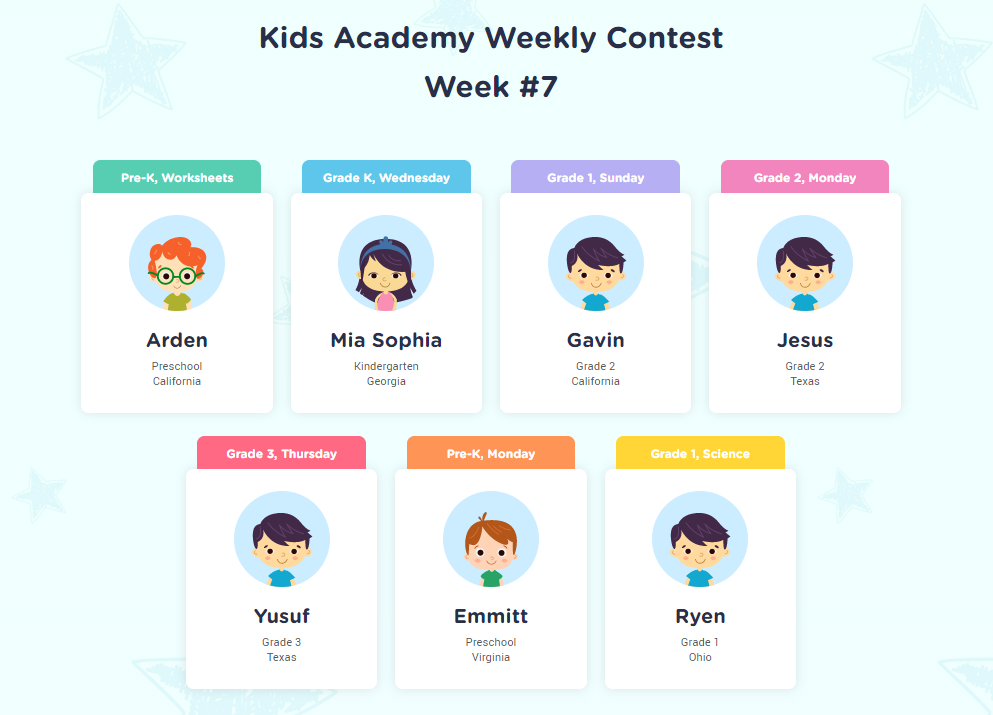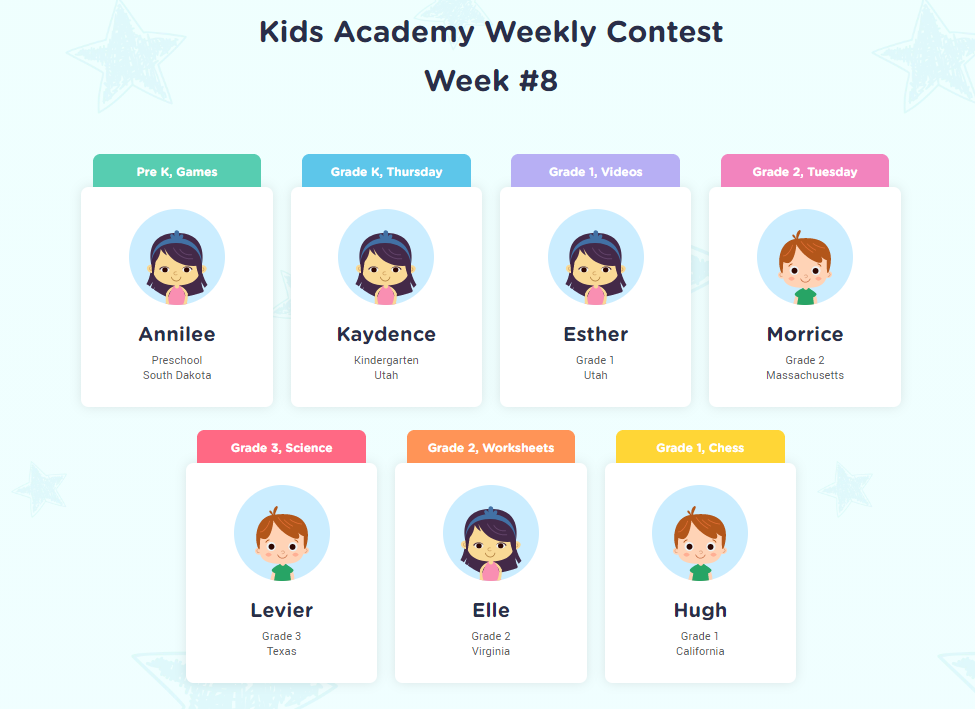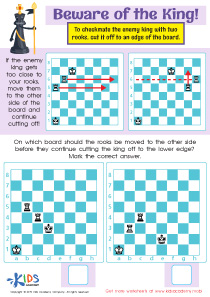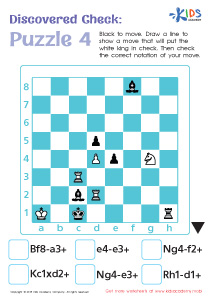Chess strategy understanding Easy Chess Worksheets for Ages 7-9
3 filtered results
-
From - To
Enhance your child's chess skills with our engaging Easy Chess Worksheets designed specifically for ages 7-9. These worksheets focus on understanding fundamental chess strategies, helping young players develop critical thinking and problem-solving abilities. With interactive activities tailored to their age group, children will learn essential concepts like controlling the center, piece coordination, and tactical maneuvers. Our worksheets combine fun and education, making it easy for kids to grasp challenging ideas in a playful manner. Foster a love for chess and boost confidence in strategic thinking through our carefully crafted resources, perfect for home or classroom use. Start your child's chess journey today!
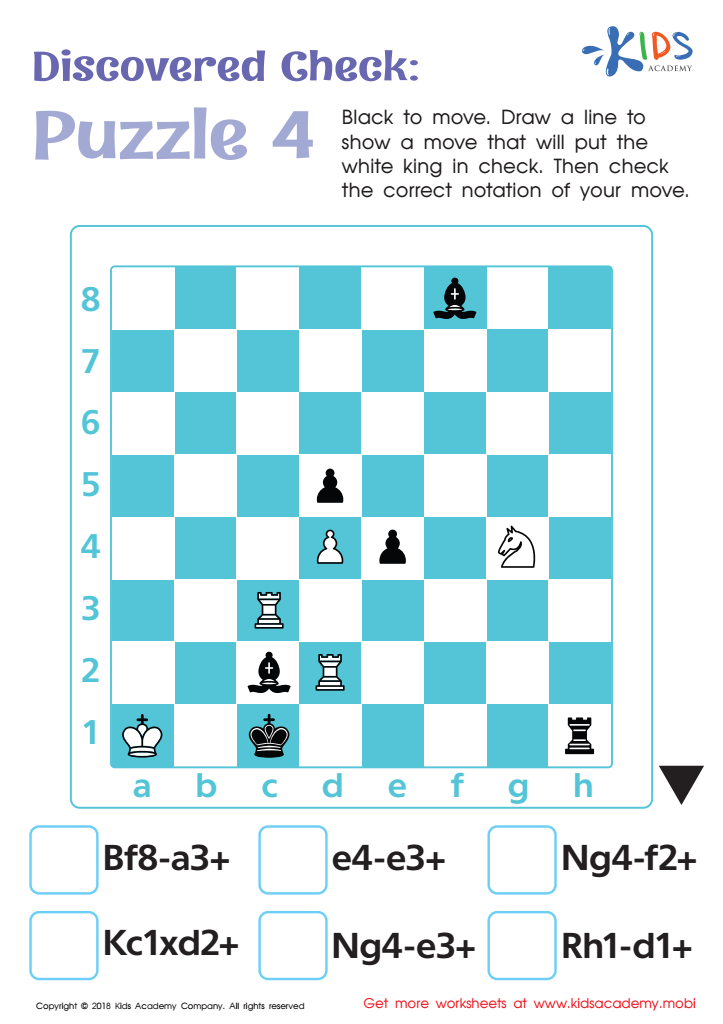

Discovered Check: Puzzle 4 Worksheet


Discovered Check: Puzzle 2 Worksheet
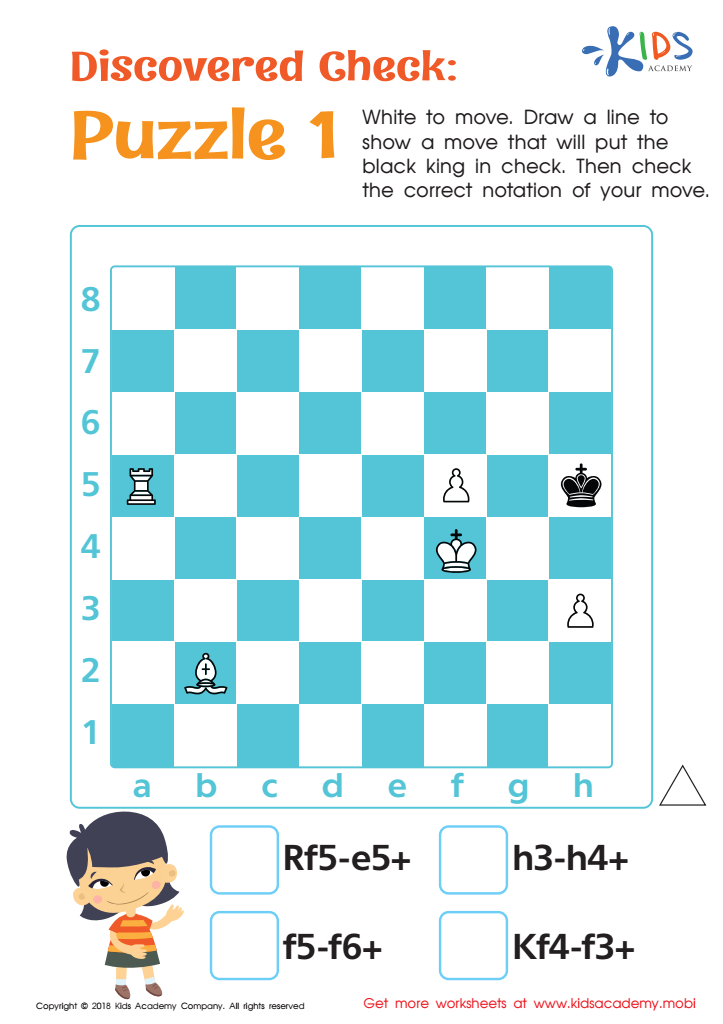

Discovered Check: Puzzle 1 Worksheet
Understanding chess strategy is crucial for children aged 7-9, and both parents and teachers should prioritize it for several reasons. Firstly, chess enhances critical thinking and problem-solving skills. By understanding chess strategies, children learn to evaluate different positions, foresee potential outcomes, and make decisions based on logic rather than impulse—skills that are transferable to their academic and personal lives.
Secondly, chess cultivates patience and perseverance. Learning and mastering strategies takes time and effort, teaching children that success comes with practice and dedication. This lesson in resilience can boost their confidence in facing challenges beyond the chessboard.
Moreover, chess encourages creativity. Students learn to create their own strategies, developing a sense of innovation as they navigate the game. This creative thinking can influence their approach to other subjects, promoting a well-rounded educational experience.
Additionally, chess is an excellent tool for social interaction. It can promote sportsmanship, encouraging children to respect opponents and cooperate with peers.
By fostering an understanding of chess strategy, parents and teachers can not only create stronger, more strategic thinkers but also promote essential life skills in younger generations. Supporting this intellectual pursuit prepares children for greater challenges, both academically and socially.





